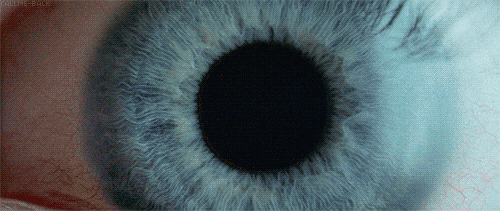"What's that thing on your arm?" Is actually something I get more often than you may think. I mean, yes, obviously it's a tattoo. My first one of what is now three (sorry Dad). But when I then proceed to say "That's Frank, from Donnie Darko?" I am still met with blank faces. Not just because most people don't even know who or what Donnie Darko and Frank are, but because they don't see it as something aesthetically pleasing.
It's not a secret that Donnie Darko is my favourite thing to exist in the world since the dawn of time. The obsession timeline goes as such: I bought the DVD for £5 in a discount film and music store in 2013 (along with the Matrix trilogy, also for £5. The shop has subsequently closed down after what seemed to be them just giving films away,) watched it with my mum, watched it five more times, got a tattoo of Frank on my arm.
I admit, Frank is not what you would class "a looker". He's not even, on first viewing, that much of a good guy. He runs Gretchen over, he makes Donnie flood the school and set fire to Patrick Swayze's house, and crash the plane Donnie's mother and sister are both flying on into a whirling black hole of destruction, death and mindfuckery.
Everyone hates Frank at first, and I don't blame them. But what you have to know about Donnie Darko, and we'll return back to why this makes Frank awesome in a second, is that the whole film revolves around the fact that there are two universes: the Primary Universe (PU) and Tangent Universe (TU). Now, the amazing thing about this film is that it's open to many different interpretations. However, with Kelly releasing his Director's Cut (available on Netflix) that explains the Philosophy of Time Travel in more depth, the "two universe theory" is the one that most people regard as the only one worth reading if you're struggling to understand the film (if you don't really give a shit about the in depth meaning of it all and felt like your head nearly exploded, just go with the "daylight schizophrenic hallucinations" explanation.)
Now, in the world of Donnie Darko, a TU is created at midnight on October 2nd, and will last for 28 days - as per Frank's message to Donnie. Now, events can unfold within the TU that do not happen in the PU (the universe we currently live in: e.g. the world that is shown in the film up to midnight on October 2nd and after 6:42.12am on Halloween. Most of the action takes place in the TU.) However, even though those events don't occur, they have a link to reality in the PU: e.g. Gretchen looking at Donnie's mother like she knew her, Frank waking up and touching his eye, Patrick Swayze in tears.
So, basically, Frank is a good guy! He saves Donnie from dying from the original drop of the engine, by honking his car horn and talking to him direct. His aim is to help Donnie on his quest to restore the unstable TU to the PU by returning the artifact. Frank gets Donnie to flood the school, causing him to meet Gretchen who also acts as a guide for Donnie. He also makes Donnie burn down Patrick Swayze's house, exposing his "kiddie porn dungeon".
Frank is Donnie's spirit guide, and that's what he is to me too. Frank is pretty misunderstood in the film, and as well as just looking awesome (who doesn't love satanic bunny rabbits?) He actually helps Donnie restore the universe to peace, even if it means sacrificing Donnie - completing his Christ-like transition throughout the film.






